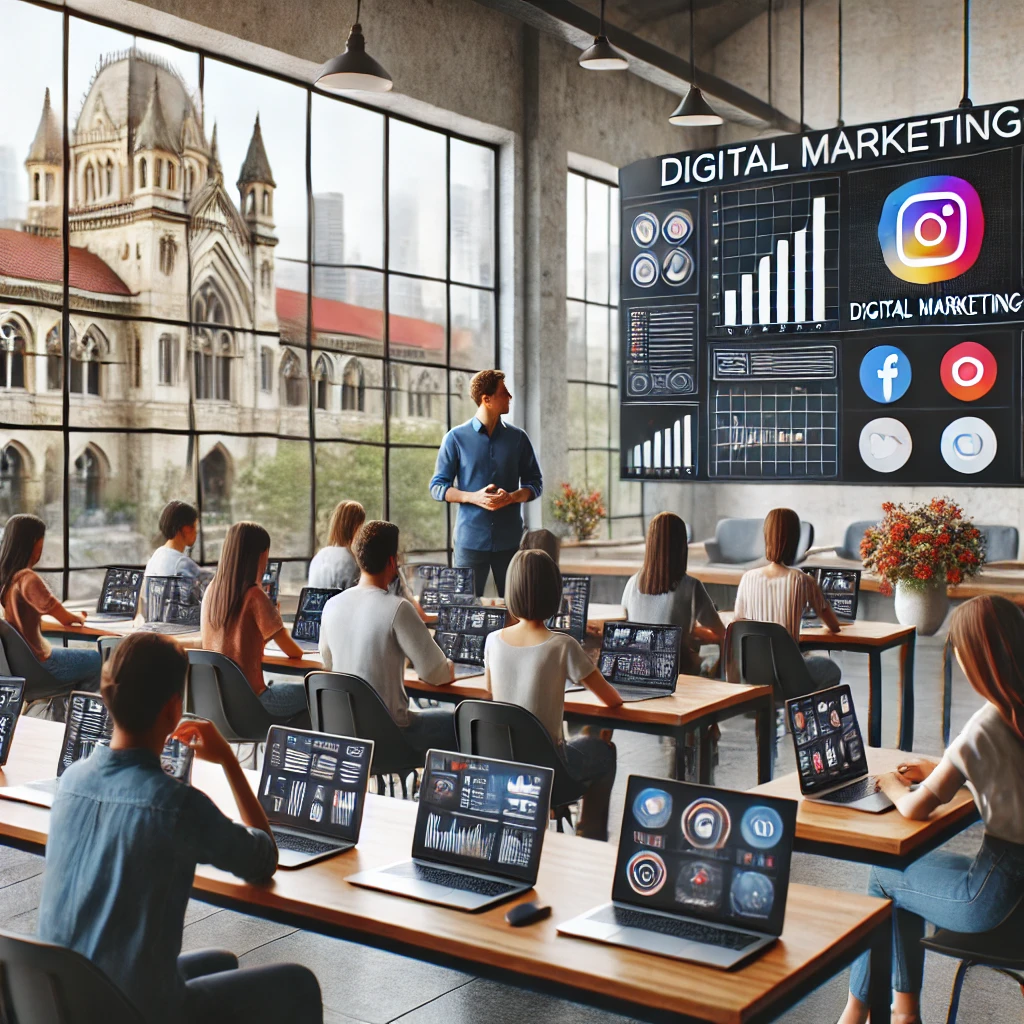1. AI-Powered Personalization
Top Digital Marketing Trends to Watch in 2025 Artificial Intelligence (AI) is poised to dominate the digital marketing landscape in 2025. Marketers are leveraging AI to create hyper-personalized experiences, analyzing vast amounts of data to predict consumer behavior and deliver tailored content in real-time. Tools powered by AI can segment audiences more effectively, automate email marketing campaigns, and even create content, enhancing both efficiency and user engagement.
Personalization will extend beyond addressing consumers by name. AI will enable dynamic website experiences that adapt to individual preferences, predictive product recommendations, and personalized ad targeting. Brands that invest in AI-driven personalization will see increased customer loyalty and conversion rates.
2. Voice Search Optimizationhttps:
The rise of voice assistants like Alexa, Google Assistant, and Siri has transformed how consumers search for information. By 2025, it is estimated that over 50% of internet searches will be conducted through voice. This trend demands a shift in SEO strategies, focusing on conversational keywords and natural language processing.
Marketers will need to optimize content for voice queries, which tend to be longer and more question-based. Structured data and featured snippets will play a crucial role in voice search visibility, as these elements are often read aloud by voice assistants. Ensuring accessibility and mobile optimization will also be vital, as most voice searches occur on mobile devices.
3. The Expansion of Metaverse Marketing
The metaverse—a virtual, immersive digital space where users interact through avatars—is set to redefine digital marketing. Platforms like Decentraland and Horizon Worlds are gaining traction, offering new opportunities for brands to engage with their audiences. From virtual storefronts to interactive events and gamified experiences, the possibilities in the metaverse are endless outbound link
Brands that adopt metaverse marketing strategies can create immersive experiences that captivate their audiences. Virtual reality (VR) and augmented reality (AR) will be instrumental in developing these experiences, enabling consumers to “try before they buy” or participate in branded virtual events. As the metaverse continues to grow, it will become a critical channel for engaging younger, tech-savvy audiences.
4. Privacy-First Marketing
With growing concerns about data privacy and tighter regulations, such as GDPR and CCPA, marketers must prioritize consumer privacy. By 2025, third-party cookies will be obsolete, pushing brands to adopt alternative data collection methods and focus on first-party data.
Privacy-first marketing emphasizes transparency, consent, and ethical data practices. Marketers will need to build trust with their audiences by clearly communicating how data is collected and used. Strategies such as contextual targeting, consent-driven personalization, and zero-party data—information willingly shared by consumers—will gain prominence.
5. Influencer Marketing Evolution
Influ
encer marketing continues to grow, but by 2025, it will evolve beyond traditional partnerships. Micro and nano influencers, with smaller but highly engaged audiences, will play a pivotal role in driving authentic connections. These influencers often have niche expertise and foster strong trust within their communities.
Marketers will also leverage AI to identify suitable influencers and measure the effectiveness of campaigns. Metrics like engagement rates, sentiment analysis, and ROI will become more sophisticated, ensuring that brands partner with influencers who align with their values
6. Video Content Dominance
Video remains one of the most engaging content formats, and its importance will only increase in 2025. Short-form videos, popularized by platforms like TikTok, Instagram Reels, and YouTube Shorts, will dominate social media. These bite-sized videos are perfect for capturing attention in a crowded digital space.
Live streaming will also continue to thrive, offering real-time interaction with audiences. Brands can use live streams for product launches, Q&A sessions, and behind-the-scenes content. With advancements in AI, creating high-quality, engaging videos will become more accessible, enabling even small businesses to harness the power of video marketing.
7. Sustainability and Purpose-Driven Marketing
Consumers are increasingly prioritizing sustainability and ethical practices when choosing brands. By 2025, purpose-driven marketing will be essential for businesses to resonate with socially conscious audiences. Brands that demonstrate genuine commitment to environmental, social, and governance (ESG) initiatives will gain a competitive edge.
Marketers will integrate sustainability into their campaigns by highlighting eco-friendly practices, supporting social causes, and fostering transparent supply chains. Authenticity will be key; consumers can quickly identify “greenwashing” and are more likely to support brands that align with their values.
8. Omnichannel Marketing Integration
Seamless integration across multiple channels will be a cornerstone of digital marketing in 2025. Consumers expect consistent experiences whether they interact with a brand through social media, email, websites, or physical stores. Omnichannel marketing ensures a unified customer journey, boosting satisfaction and loyalty.
Advanced customer relationship management (CRM) systems and AI will facilitate data synchronization across channels, enabling personalized interactions at every touchpoint. Brands that master omnichannel strategies will create cohesive, meaningful experiences that enhance customer engagement.
9. Growth of Interactive Content
Interactive content—quizzes, polls, interactive infographics, and augmented reality—is becoming a powerful tool for engaging audiences. By 2025, this type of content will be a staple in digital marketing strategies. Interactive elements encourage users to participate actively, increasing time spent on a website and improving retention.
AR, in particular, will enable immersive experiences, such as virtual try-ons for fashion and beauty products or 3D visualizations of home decor. Gamification will also play a role in capturing attention and driving engagement. Brands that incorporate interactive content into their campaigns will stand out in an increasingly crowded digital landscape.
10. Data-Driven Decision Making
As data collection methods evolve, so does the ability to analyze and act on insights. By 2025, data-driven marketing will be more sophisticated, leveraging advanced analytics and machine learning to optimize strategies. Real-time data analysis will allow marketers to adapt campaigns on the fly, ensuring maximum effectiveness.
Predictive analytics will play a significant role in anticipating trends and consumer behavior. Marketers will use these insights to refine targeting, improve ROI, and deliver highly relevant content. A strong foundation in data literacy will be essential for businesses to harness the full potential of this trend.
11. Focus on Customer Experience (CX)
Chatbots and AI-driven customer service tools will play a significant role in enhancing CX. These technologies can provide instant assistance, resolve issues efficiently, and gather feedback for continuous improvement. Ensuring a positive customer experience will drive retention, loyalty, and advocacy.




